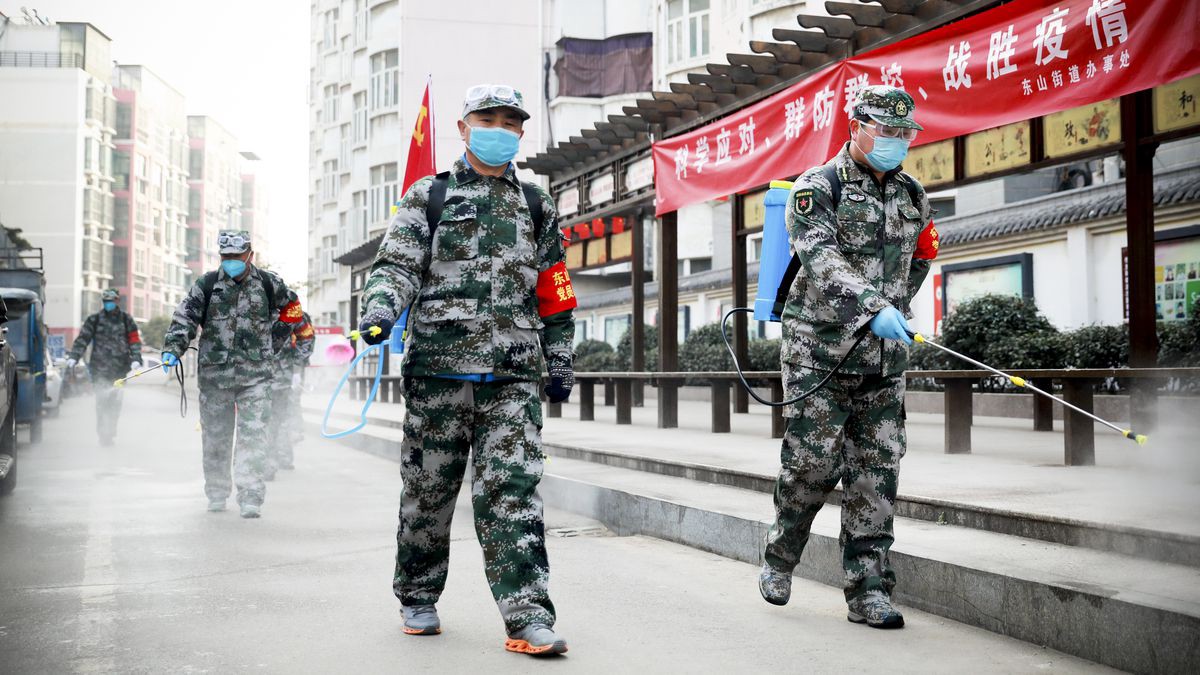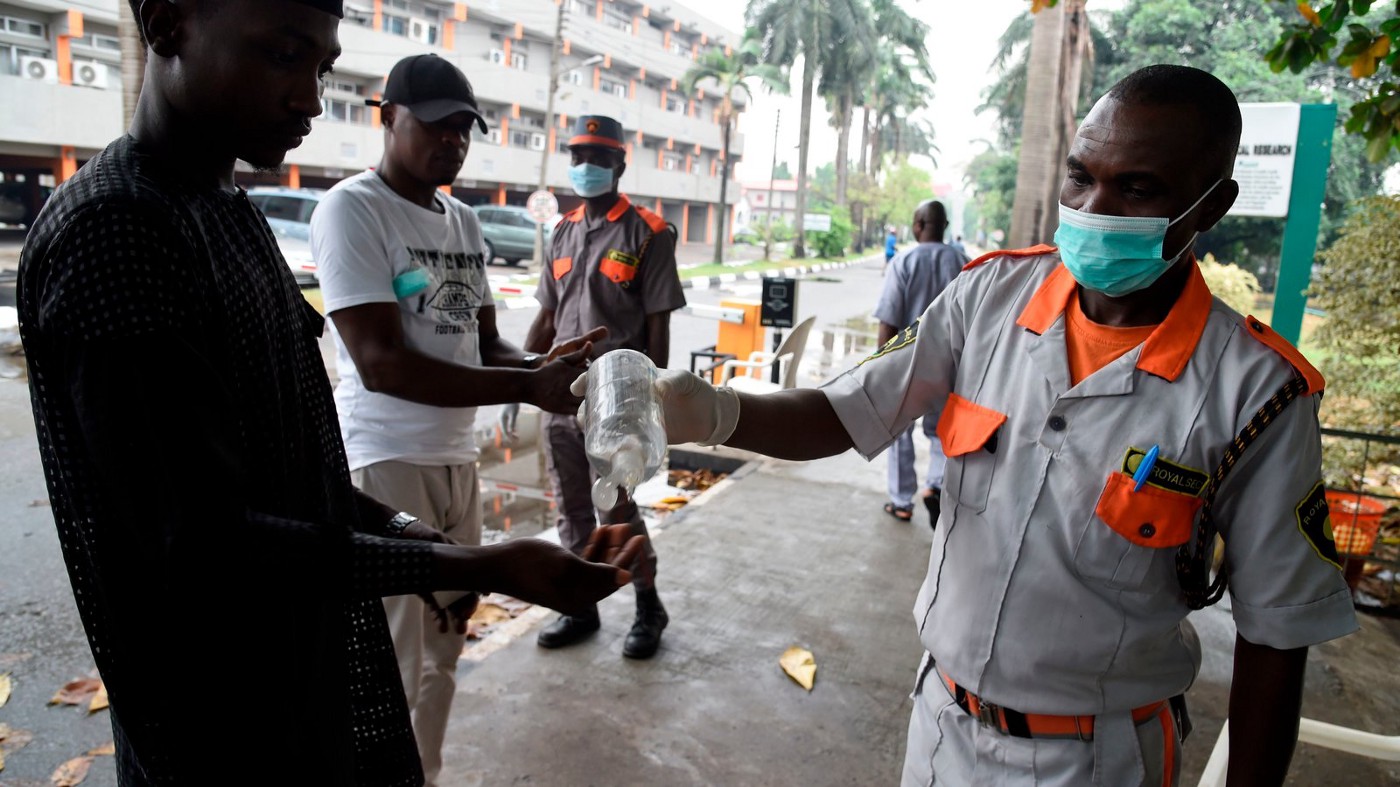Africa’s COVID-19 solution lies in information and not isolation-A look at Hubei vs New York
March 31, 2020 africa / America / Ben Kazora / China / Corona / Covid19 / Diaspora / Health / Medicine / New York / Pandemic / Singapore / Spanish Flu / USA / Western World / World

- The black death pandemic is estimated to have killed up to 60% of Europe which was an estimate of 450 million people in the 14th century.
- Today a virus can travel first class on KLM to Africa and infect millions
- In Taiwan, when an infected person leaves their home or turns the phone off the police and local authority will be alerted and the person will be visited within 15 minutes
- The Co-100 app shares when the person tested positive, their nationality, gender and age.
Africa’s Advantage in the war with COVID-19
Interesting to note how the richer nations have been first to succumb to COVID-19 scourge. I believe this is primarily owed to the business and tourism between China and the west. Africa is benefited from late infections and has the advantage of lessons learned from the earlier victims and how the nations have dealt with it. Examining the Asian and European reactions to this pandemic Africa is primed to implement the best of both worlds. To this end, I firmly believe the critical soldiers in this unique battle against the pathogens, are the data scientists in concert with the healthcare workers armed with data. This approach in my view will save the continent millions of lives, jobs and the continents vulnerable economy.
Tale of two localities: Hubei & New York
With only 404 COVID-19 (0.07% of the population) cases Singapore has proven more adept at handling this pandemic than New York. Despite a greater distance from the epicenter (Hubei Province), New York has 2.3 times more cases compared to Singapore, relative to the population. With 81,281 cases out of 1.4 billion people it’s hard to deny that China got it right.
Hubei province with 60M people had 67,801 cases. This infection rate of 0.1% remain less than New York. Wuhan, the COVID-19 epicenter had about two-thirds of all China’s cases is about to lift the lead and resume life as normal. While the western world is grappling with this pandemic, it seems there are many lessons to learn from the east. Given the technological advancements of the west and advances in medicine I couldn’t help but wonder. First off let’s examine previous pandemics.
We have been down this road before
During the 14th to 19th century the world was dealt with the Black Death. This disease that was spread by body lice started in Italy and spread across Europe to France, Spain, Portugal, Scotland, and Scandinavia among others. This pandemic is estimated to have killed up to 60% of Europe which was an estimate of 450 million people in the 14th century.
Like COVID-19 today, the smallpox pandemic was equally class-blind killing the rich and poor alike. This plague is estimated to have decimated close to 30 million Mexicans by 1568 which was way before the arrival of Hernan Cortes. Despite the Spaniards having a superior army, the microscopic ally (smallpox) that Cortes army unwillingly brought from Europe helped take down the Aztec empire. This disease spread along trade routes in Asia, Africa, and Europe, eventually reaching the Americas. Smallpox is estimated to have killed 300 million people in the 20th century alone. It’s also estimate that fatality rate was 30% of those infected.
Wherever it began, the 1918 flu pandemic lasted just 15 months but was the deadliest disease outbreak in human history, killing between 50 million and 100 million people worldwide, according to the most widely cited analysis. The effect of the flu pandemic was so severe that the average life span in the US was depressed by 10 years.
It’s information not isolation
Clearly, without airplanes or cruise ships we have seen diseases spreading from east to west Europe and across continents. This means that closing our boarders isn’t the permanent solution. Germany took in about 50 Italian COVID-19 patients to help with the treatment. German’s gesture speaks to the power of collaboration and sharing of information that has proven to be the best weapon against these pathogen. Sweden has not closed its borders or its schools. Neither has it closed non-essential businesses or banned gatherings of more than two people, like the U.K. and Germany. Sweden has taken the unorthodox approach of simply informing and trusting the citizens.
Sweden’s 10 million strong population has reported 3,700 cases and only 110 deaths, while New York reports about ten times the rates of death and infections while population difference is only double. This phenomenon further shows that isolation isn’t the true solution.
Over the years we have seen doctors win the battle against the pathogens one time too many. The secret lies in the fact that while pathogens rely on blind mutations, the doctors have been armed with the powerful scientific analysis born of information. Third world countries have always struggled to deal with the likes of Ebola due to the non-data driven approach. This present danger posed by COVID-19 presents the third world a chance to examine novel ways of fighting pandemics and epidemics. I will term the information driven approach as the Asia approach.
We have seen time and again that the Asian nations of China, Singapore and Taiwan and others have proven more efficient at handling the pandemic. Africa political philosophies happen to be more aligned with those of Asia than those of the west. In a world where a virus can travel first class on KLM to Africa and infect millions, information becomes the only tool available to combat this. The US strongly adheres to privacy laws and that makes collection of pertinent data much more difficult. Perhaps, it’s time to examine the modification of these laws during such gruesome times. I imagine people are willing to temporarily trade privacy for life.
Data is the most lethal ammunition in this war
In Beijing, “Beijing Cares” app has been integrated into the permeating WeChat app. People under quarantine are made to input their daily temperature and health status into the app. When the isolation period is over, a “healthy status” page is generated, which users can flash at buildings and malls to gain entry. The Chinese government also releases details about patients’ travel history – via text messages on the mobile phone and state-managed websites – so the public can avoid places where the virus was once active.
South Korea took more aggressive steps by deploying a innovative system using data such as surveillance camera footage and credit card transactions of confirmed COVID-19 patients to recreate their movements. Max Kim of the MIT Technology review reported that the Ministry of the Interior and Safety using their Corona-100m (Co100) app, that allows those who have been ordered not to leave home to stay in contact with case workers and report on their progress. The app will also use GPS to keep track of their location to make sure they are not breaking their quarantine. Additionally, the app allows users to see how close they are to places that COVID-19 patients have visited before testing positive. As if that’s not enough, the app also shares when the person tested positive, their nationality, gender and age.
Taiwan went further to implement mobile phone electronic fencing. This location tracking platform ensures that those quarantined remain at home. The primary intent here is to ensure those infected aren’t running around spreading the virus. When one leaves their home or turns the phone off the police and local authority will be alerted and the person will be visited within 15 minutes. Officials also call twice a day to ensure the phone isn’t left at home by the infected person. Fact remains that the virus doesn’t travel from place to place but humans take the virus from one place to another.
Can we sacrifice our privacy to save our lives?
I know the mentioned slants would run afoul of privacy laws in the west. However, this is perhaps the most ideal time for African countries to come up with the Infection Protection Act akin to the German version being modified to deal with COVID-19. MTN group has close to 244 million subscribers while Vodacom has over 110 million. All together close to 750 million people in Africa have cellphones. The solution to the war with COVID-19 and future pandemics hinges on leveraging data and technology to complement the doctor’s efforts. The World Health Organization (WHO), Director-General Tedros Ghebreyesus said “the steps China took to fight the virus at its epicenter were a good way of stopping its spread.” African must act fast and swiftly. This is ultimately a sprint and not a marathon.
Remember that worry is like a rocking chair: It gives you something to do but never gets you anywhere. Instead adhere to the known protocols such as social distancing, washing hands often, cough into your elbows,stay home.




